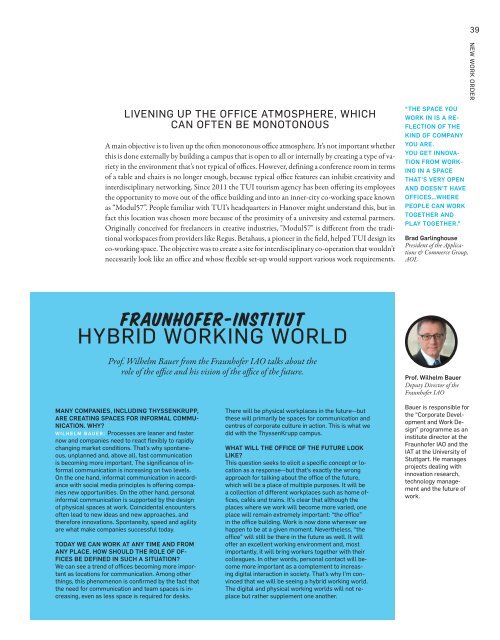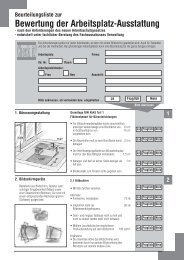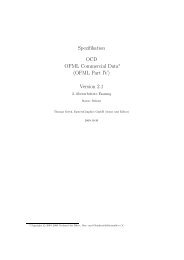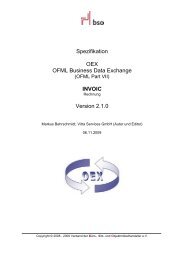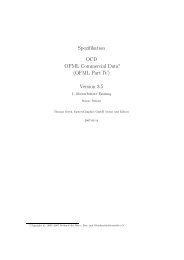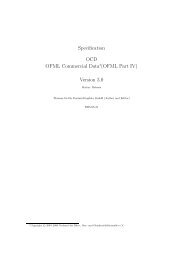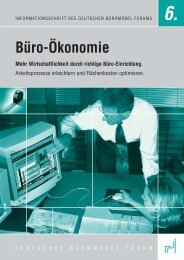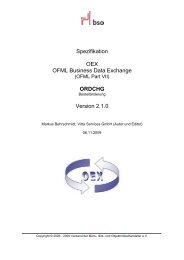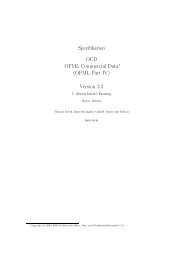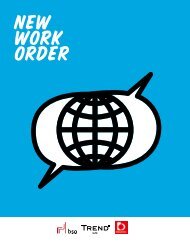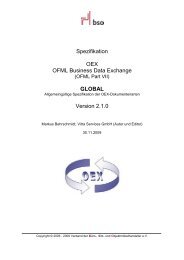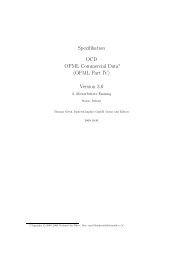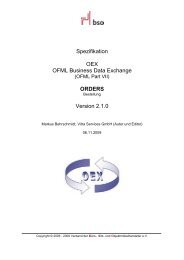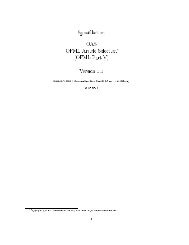New Work Order - Orgatec
New Work Order - Orgatec
New Work Order - Orgatec
- No tags were found...
You also want an ePaper? Increase the reach of your titles
YUMPU automatically turns print PDFs into web optimized ePapers that Google loves.
39Livening up the office atmosphere, whichcan often be monotonousA main objective is to liven up the often monotonous office atmosphere. It’s not important whetherthis is done externally by building a campus that is open to all or internally by creating a type of varietyin the environment that’s not typical of offices. However, defining a conference room in termsof a table and chairs is no longer enough, because typical office features can inhibit creativity andinterdisciplinary networking. Since 2011 the TUI tourism agency has been offering its employeesthe opportunity to move out of the office building and into an inner-city co-working space knownas “Modul57”. People familiar with TUI’s headquarters in Hanover might understand this, but infact this location was chosen more because of the proximity of a university and external partners.Originally conceived for freelancers in creative industries, "Modul57" is different from the traditionalworkspaces from providers like Regus. Betahaus, a pioneer in the field, helped TUI design itsco-working space. The objective was to create a site for interdisciplinary co-operation that wouldn’tnecessarily look like an office and whose flexible set-up would support various work requirements.“The space youwork in is a reflectionof thekind of companyyou are.You get innovationfrom workingin a spacethat’s very openand doesn’t haveoffices…wherepeople can worktogether andplay together.”Brad GarlinghousePresident of the Applications& Commerce Group,AOL<strong>New</strong> <strong>Work</strong> orderFRaunhofer-InstitutHYBRID WORKING WORLDProf. Wilhelm Bauer from the Fraunhofer IAO talks about therole of the office and his vision of the office of the future.Prof. Wilhelm BauerDeputy Director of theFraunhofer IAOMany companies, including ThyssenKrupp,are creating spaces for informal communication.Why?Wilhelm Bauer: Processes are leaner and fasternow and companies need to react flexibly to rapidlychanging market conditions. That’s why spontaneous,unplanned and, above all, fast communicationis becoming more important. The significance of informalcommunication is increasing on two levels.On the one hand, informal communication in accordancewith social media principles is offering companiesnew opportunities. On the other hand, personalinformal communication is supported by the designof physical spaces at work. Coincidental encountersoften lead to new ideas and new approaches, andtherefore innovations. Spontaneity, speed and agilityare what make companies successful today.today we can work at any time and fromany place. How should the role of officesbe defined in such a situation?We can see a trend of offices becoming more importantas locations for communication. Among otherthings, this phenomenon is confirmed by the fact thatthe need for communication and team spaces is increasing,even as less space is required for desks.There will be physical workplaces in the future—butthese will primarily be spaces for communication andcentres of corporate culture in action. This is what wedid with the Thyssen krupp campus.WHAT WILL THE OFFICE OF THE FUTURE LOOKLIKE?This question seeks to elicit a specific concept or locationas a response—but that’s exactly the wrongapproach for talking about the office of the future,which will be a place of multiple purposes. It will bea collection of different workplaces such as home offices,cafés and trains. It’s clear that although theplaces where we work will become more varied, oneplace will remain extremely important: “the office”in the office building. <strong>Work</strong> is now done wherever wehappen to be at a given moment. Nevertheless, “theoffice” will still be there in the future as well. It willoffer an excellent working environment and, mostimportantly, it will bring workers together with theircolleagues. In other words, personal contact will becomemore important as a complement to increasingdigital interaction in society. That’s why I’m convincedthat we will be seeing a hybrid working world.The digital and physical working worlds will not replacebut rather supplement one another.Bauer is responsible forthe “Corporate Developmentand <strong>Work</strong> Design”programme as aninstitute director at theFraunhofer IAO and theIAT at the University ofStuttgart. He managesprojects dealing withinnovation research,technology managementand the future ofwork.


